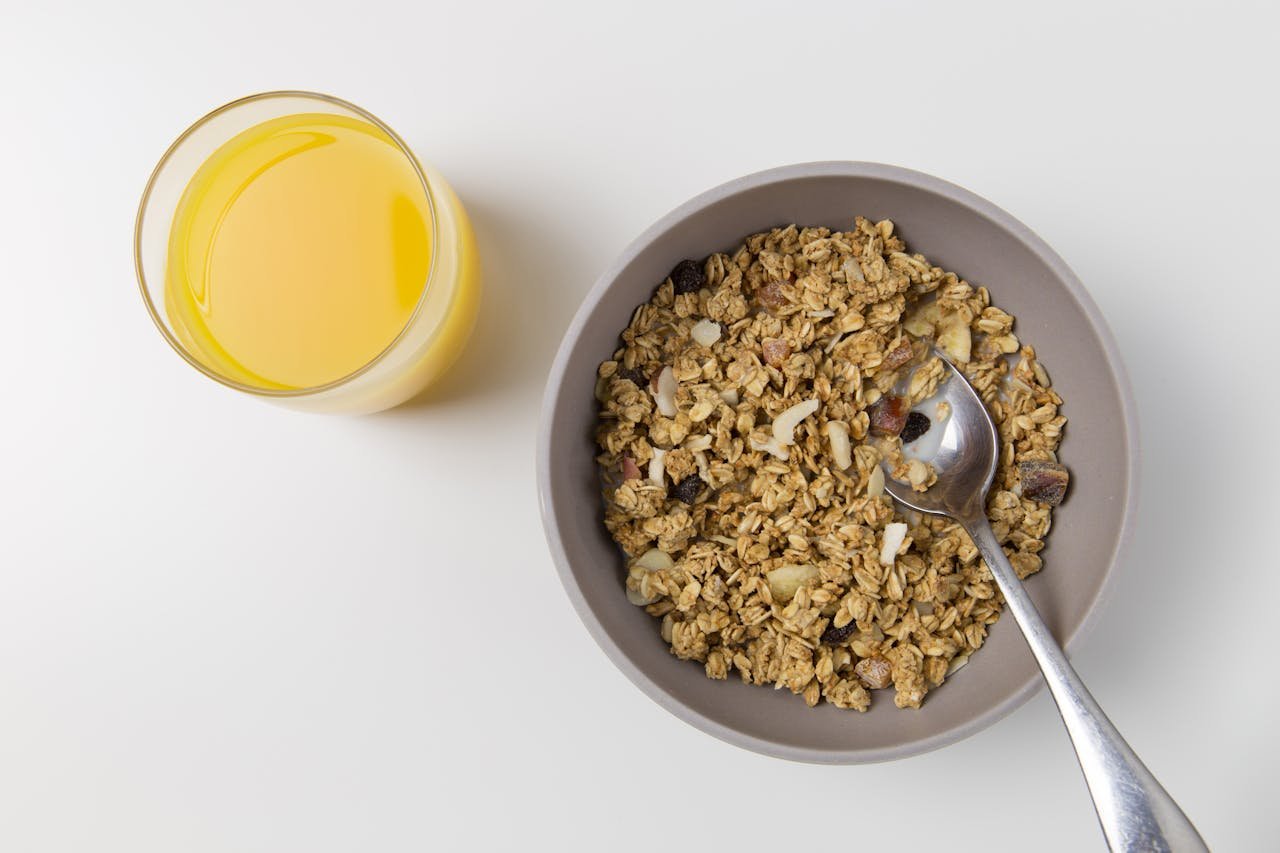It doesn’t matter what type of diet you follow, whether you are a carnivore, vegetarian, or vegan, your body needs protein to survive and carry out many of its functions.
Note: There are many foods rich in protein of both animal and plant origin.
In this article we will see what some of these are, but first…
What are proteins?
Protein is one of the macronutrients that form an important block of our diet. Among them are: carbohydrates, fats, and proteins.
To highlight: A macronutrient is a nutrient that the body needs in large quantities to keep it functioning and provide calories, which it uses for energy.
Protein is made up of small compounds called amino acids. There are hundreds of amino acids in nature, but the human body only needs 20 of them.
Our body can produce 11 of the 20. The remaining 9, essential amino acids, must come from protein-rich foods.
Protein is a fundamental component of life. Without it, our bodies would not exist. This is because we are made of proteins. From our heart to our brain our bones and our muscles, all our organs, arteries, veins, skin, hair, and nails.
Note: The main job of proteins is to build, maintain, and restore muscles, organs, and tissues.
Besides, Protein is important because it helps us stay more satiated than with other macronutrients such as carbohydrates. This happens because proteins take longer to digest. That is, protein tends to keep us satisfied longer than carbohydrates.
Protein foods
Almost all foods contain some protein. However, there are foods richer in protein than others, so take notes because here they come!
1. Eggs
How many times have you heard someone talk badly about eggs? Eggs are probably one of the most complete foods that nature has to offer us.
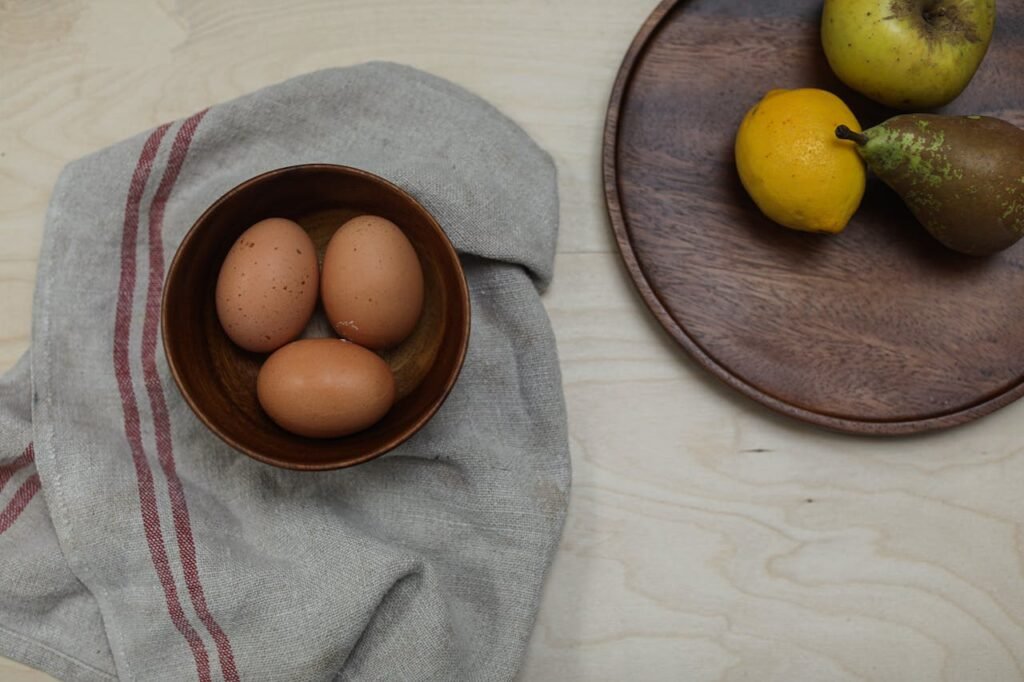
Note: A whole egg contains a wide variety of nutrients. Eggs are rich in vitamins minerals, and good fats and each one has 6 grams of quality protein.
Most of the protein from eggs is found in the whites, while the yolk contains good fats. Egg white is the highest protein food that provides the least calories, That’s why it’s so popular among bodybuilders.
2. Chicken
Chicken is also another favorite of bodybuilders, and this is because It is high in protein and low in fat. This makes it an ideal source of lean proteins (that is, they provide less fat and fewer calories).
Besides, chicken keeps you satisfied for a long time and it is such a versatile food that it can be prepared in many different ways.
To highlight: One cooked, skinless chicken breast (172 grams) contains 54 grams of protein, which is equivalent to 31 grams of protein per 100 grams.
3. Turkey
Poultry meat is one of the leanest options if the skin is removed. 100 grams of turkey gives you approximately 29 grams of high-quality protein, along with B vitamins and selenium.
4. Salmon
Fish and shellfish are rich in nutrients and salmon is not an exception. It is rich in antioxidants and is an excellent source of protein, high-quality vitamins, and minerals.
However, it is not one of the leanest fish as it is high in healthy fats, rich in omega-3.
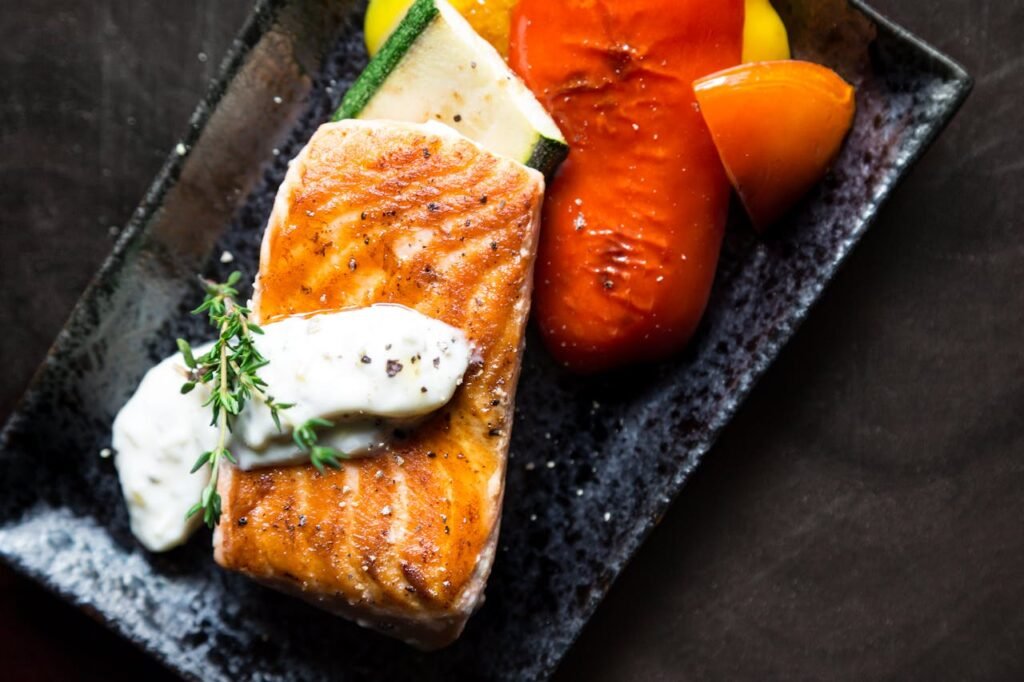
Note: A 100g serving of grilled salmon contains 25g of protein.
5. Tuna
A portion of 100 grams of tuna contains only 0.5 g of fat and more than 20 grams of protein, making it a source of lean and complete protein.
Note: Canned tuna is not as lean as other fish, however, naturally canned tuna is a better option.
6. Prawns
It’s hard to find a leaner protein source than shrimp, which has less than half a gram of fat per 100-gram serving. Combined with its high protein content, it makes it an excellent option.
7. Pork
With a high protein content and many vitamins and minerals, Lean pork can be an excellent addition to a healthy diet. A 100-gram serving of cooked pork provides 25.7 grams of protein.
8. Beef
Lean cuts of beef contain less than 10 grams of fat per 100-gram cooked serving.
Loin and sirloin are lean cuts. Additionally, a serving of meat is an excellent source of B vitamins, zinc, and selenium.
9. Milk
Skim milk is an easy way to get protein. A 240 ml glass of skimmed milk contains 8 grams of protein and only 2.5 grams of fat.
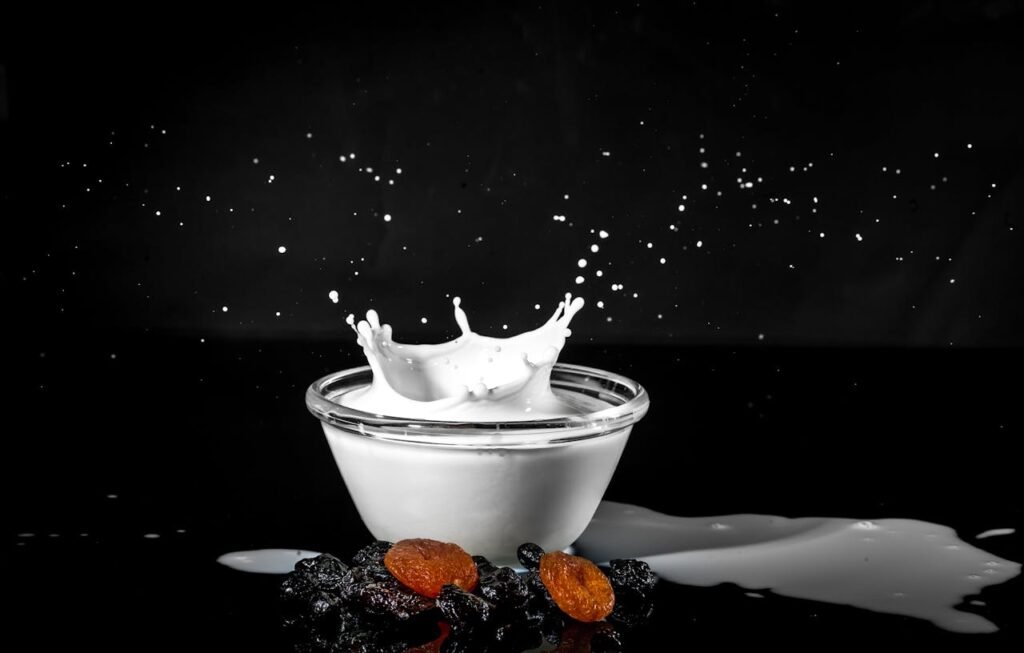
Note: Milk is an ideal ingredient to add protein to your meals, whether in coffee, with cereals, or even in preparations, sauces, and soups.
10. Yogurt
A study published in the Journal of Dairy Science concluded that A 170-gram serving of Greek yogurt contains 20 grams of protein, compared to 9 grams in a serving of conventional yogurt (1).
This is because Greek yogurt is strained to eliminate whey, leaving a more concentrated product with more protein.
Low-fat plain Greek yogurt is a good option. It is best to buy the natural one, free of artificial sweeteners and flavors.
11. Oats
Although oatmeal is a complex carbohydrate that provides a slow release of energy, it is also an excellent source of protein since 100 grams of oats contain 10 grams of protein, which is very high for a cereal.
This makes it an Excellent breakfast, especially for vegans. For a complete breakfast with protein, carbohydrates, and good fats, you can cook oatmeal with almond milk, fruits, and chia seeds.
12. Grains
Whole grains, in addition to being easy to eat at all times of the day, can provide additional protein to meals, even though we normally consider them sources of carbohydrates.
Note: Many varieties are high in protein, and also provide fiber, vitamins, and minerals. Some of these are oats, quinoa, amaranth, corn, rice, and wheat.
13. Quinoa
Quinoa is a seed that Every 100 grams of cooked weight provides almost 4 grams of protein.
Furthermore, quinoa is a complete protein, meaning it contains 22 amino acids, which makes it an excellent alternative to include protein in a vegan diet.
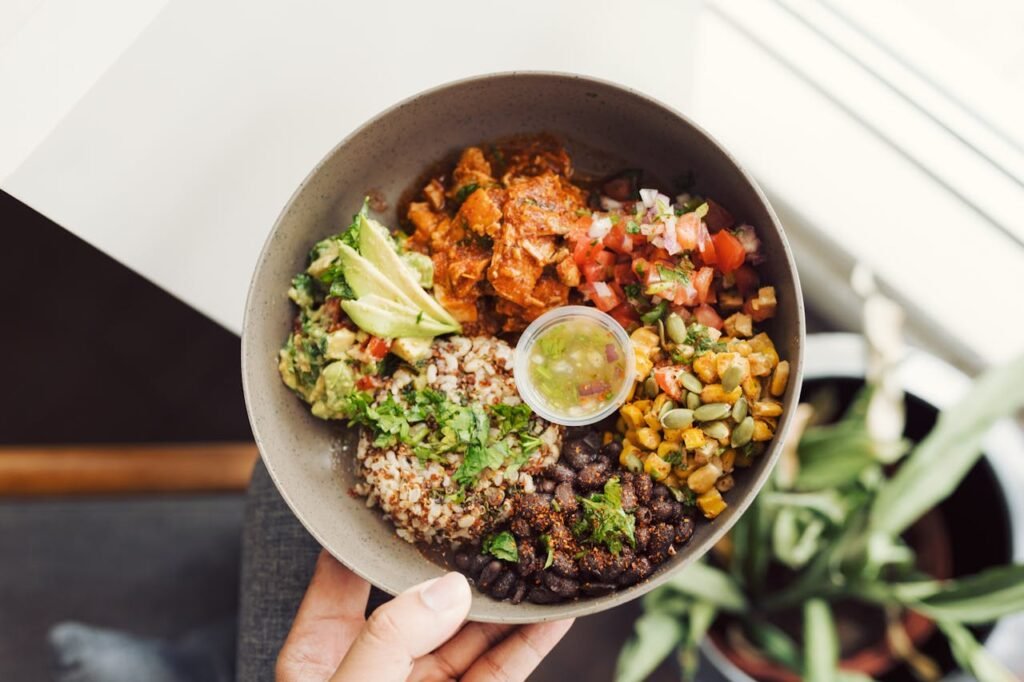
14. Nuts
Nuts are very versatile and can be added to all types of meals or simply as a snack. Some of the best proteins from nuts and seeds include:
- Almonds: 3 grams of protein per 6 almonds
- Nuts: 3 grams of protein per 3 nuts
- Pistachios: 1 gram of protein per 10 pistachios
- Cashew nuts: 3 grams per 10 cashews
- Brazil nuts: 4 grams per 6 nuts
The butter of walnuts and peanuts are also excellent sources of protein. One tablespoon of peanut butter (about 15 grams) provides 4 grams of protein.
This makes it an ideal addition to your toast or even to add to a smoothie.
15. Gelatin
Believe it or not, gelatin is full of protein. In just 2 tablespoons, there are 11 grams of protein. That’s about 10% of the recommended daily dose.
To highlight: Gelatin is not a complete protein because it lacks some amino acids, but it can help you get much-needed protein in your diet.
Importance of consuming protein foods
Consuming protein is important since it not only fulfills the essential function of building, maintaining, and repairing all the tissues in our body, from organs to your nails, but also a diet rich in protein It is related to slower aging.
To highlight: A study published in Joint Bone Spine suggests that a diet high in protein can help avoid sarcopenia, a disease that affects older adults and consists of loss of muscle mass(2).
Sarcopenia takes a heavy toll on functional impairment, metabolic disorders, morbidity, and mortality. Thus, the consequences of sarcopenia include disability, deterioration in the quality of life, falls, osteoporosis, cardiovascular risk, metabolic syndrome, and immunosuppression.
And as if that were not enough, If you are looking to lose weight and improve your body composition, protein can be your greatest ally. A study published in Nutrition & Metabolism suggests that a high-protein diet has beneficial effects on satiety and weight control, which helps promote weight loss (3).
Furthermore, the protein is necessary to build muscle, and combined with a resistance training plan, can result in fat loss and gains in muscle mass.
Key takeaways
- No matter what type of diet you follow, whether you are a carnivore, vegetarian, or vegan, your body needs protein to survive and carry out many of its functions.
- Protein is one of the macronutrients that form an important block of our diet. It is made up of small compounds called amino acids. There are hundreds of amino acids in nature, but the human body only needs 20 of them.
- We are made of protein, from our heart to our brain, our bones and our muscles, all our organs, arteries, veins, skin, hair, and nails.
- There are many foods rich in protein of both animal and plant origin, including oats, chicken, salmon, eggs, grains, nuts, quinoa, beef, pork, turkey, tuna, and prawns, among others.
- It is important to consume protein because in addition to helping us build, maintain, and repair all the tissues in our body, and keeping us more satiated, a diet rich in protein is related to slower aging.
Share this content:
